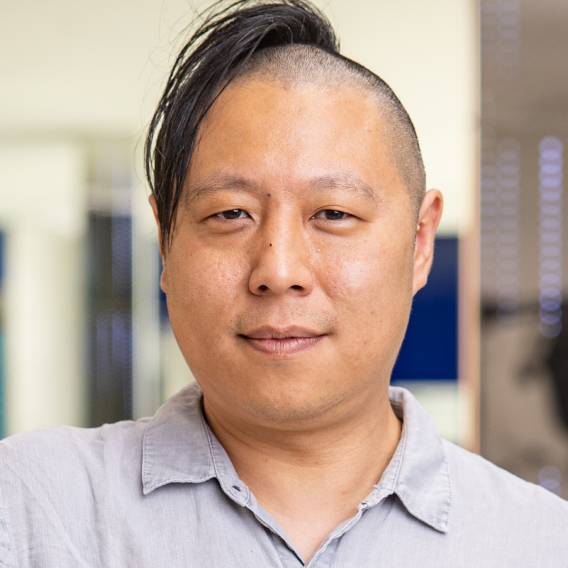START YOUR JOURNEY NOW
Overview
The Bachelor of Science in Artificial Intelligence (Business) program emphasizes the use of AI to solve entrepreneurial and commercial challenges, equipping students with knowledge in business, strategy, decision-making, and innovation. Students may switch streams within the first year of enrollment if they find their interests shifting.
This program is suited for those who wish to harness AI’s power for business transformation including aspiring or current entrepreneurs and future AI-driven leaders ready to transform industries (no coding experience necessary). Those who endeavor to build game-changing businesses that leverage the latest AI advancements to redefine industries, drive market disruption, and accelerate strategic growth.
This stream equips future leaders with AI-driven insights to transform industries or start their own business. What marketing looks like? What accounting entails? And what the startup journey looks like? Taught by global entrepreneurs who've been through that experience successfully and can talk in a hands-on way, providing all the elements that will lead to future success.
There is a strong focus on experiential learning and industry placements. In the final year, students participate in a full-time cooperative education program, working in industry placements instead of attending traditional classes. MBZUAI’s Career Services and Internship team assists in securing these placements, working with a network of employers to ensure meaningful and academically aligned co-op experiences.
-
Mode: Full-time
-
120 credits
-
Location: On campus
Meet the faculty
National Qualifications Framework – three strands
The program learning outcomes (PLOs) are aligned with the Emirates Qualifications Framework and, as such, are divided into the following learning outcomes strands: Knowledge (K), Skills (S), Responsibility (R).
Upon completion of the program requirements, graduates will be able to:
PLO 01: AI applications and ethics: Analyze the capabilities, limitations, and ethical implications of AI to design responsible and impactful solutions for domain-specific challenges.
PLO 02: Model development and deployment: Develop, train, and implement AI models and solutions using advanced tools and technologies for practical, real-world applications.
PLO 03: Interdisciplinary innovation: Apply AI creatively across fields such as the arts, humanities, and business, fostering innovation through interdisciplinary and human-centric approaches.
PLO 04: Entrepreneurial problem solving: Identify opportunities for AI-driven innovation in businesses and organizations, design entrepreneurial solutions that generate value, and develop skills in deploying those solutions in the real world.
PLO 05: Leadership and vision: Lead AI-driven projects with creativity, strong ethical frameworks, and a visionary mindset, addressing emerging challenges and driving sustainable growth.
PLO 06: Effective communication: Communicate complex AI concepts, applications, and solutions effectively to diverse audiences, including technical teams, stakeholders, and the general public.
The PLOs are mapped to the National Qualifications Framework Level Six (6) qualification and categorized into three domains (knowledge, skill, and responsibility) as per the National Qualifications Framework set by the UAE National Qualifications Centre (NQC) and the Ministry of Higher Education and Scientific Research (MoHESR):
| PLOs | Knowledge | Skill | Responsibility |
|---|---|---|---|
| PLO 01 | K | S | – |
| PLO 02 | – | S | – |
| PLO 03 | – | S | – |
| PLO 04 | – | S | R |
| PLO 05 | – | – | R |
| PLO 06 | – | S | R |
Students are required to complete all Bachelor of Science in Artificial Intelligence program requirements within four (4) years. The minimum degree requirements for the Bachelor of Science in Artificial Intelligence (Business) is 120 credits, distributed as follows:
| Number of courses | Credit hours | |
|---|---|---|
| General education | 7 | 21 |
| Math core | 2 | 6 |
| AI core | 6 | 18 |
| Business core | 7 | 21 |
| Business electives | 2 | 6 |
| Engineering electives | 4 | 12 |
| Internship | 1 | 6 |
| Industry co-operatives | 2 | 30 |
| Total | 31 | 120 |
| Code | Course title | Credit hours |
|---|---|---|
| GE1005 |
Communication: The Power of Words
Course description: Clear communication is one of the most essential and undervalued skills in the tech industry. No matter how innovative a project is, it won’t gain support, funding, or traction unless it’s explained in a way that people understand and care about. This course gives students the tools to bridge that gap. It teaches them how to translate complex technical ideas into clear, persuasive stories that resonate with investors, teammates, clients, and the public. In an industry where success depends as much on communication as code, these skills are not optional—they’re fundamental. Students will learn how to craft narratives that make their work meaningful and memorable, whether presenting live, writing professionally, or building a digital presence. The course combines practical tools with creative thinking: from redesigning academic slides to delivering TED-style talks, from writing concise executive summaries to launching social media campaigns. By the end of the course, students will have a portfolio of high-quality work and the confidence to communicate ideas that matter. |
3 |
| GE1010 |
Entrepreneurship: The Founder’s Playbook
Course description: The Founder’s Playbook course provides first-year students with a hands-on journey through the entrepreneurial process, from ideation to launch. Through experiential learning, students will discover how to identify real problems, build solutions, validate ideas with customers, create prototypes, and pitch their ventures. The course emphasizes learning-by-doing, where students form teams and work on actual startup ideas throughout the semester. Integrating AI tools throughout the journey, students will learn modern approaches to building ventures in the digital age. By the end of the course, students will have experienced the complete startup lifecycle, developed an entrepreneurial mindset, and gained practical skills to transform ideas into viable ventures. No prior business knowledge is required – just curiosity and willingness to embrace the entrepreneurial journey. |
3 |
| GE2005 |
The Emirati Spirit: From Deep Roots to a Bold Future
Course description: This course provides students with a comprehensive understanding of the United Arab Emirates’ (UAE) history, culture, society, and political system. It explores the UAE’s transformation from a traditional society to a modern, globally connected nation. Topics include the UAE’s governance, economic development, cultural heritage, and role in regional and international affairs. The course also examines the values of tolerance, sustainability, and innovation that underpin the UAE’s vision for the future. Through lectures, discussions, and projects, students will gain a deeper appreciation of the UAE’s unique identity and its contributions to the global community. |
3 |
| AND select one from the list below (ethics): | ||
| GE2310 |
Philosophy in the Age of AI : Minds, Machines, and Morality
Course description: This course explores fundamental questions about existence, knowledge, morality, and human nature. Students will engage with key philosophical traditions and ethical theories, analyzing concepts such as justice, rights, and the nature of good. The course also examines the ethical implications of artificial intelligence, including issues of autonomy, privacy, and bias in AI systems. Through discussion and critical thinking, students will consider how AI challenges traditional ethical frameworks and shapes modern philosophy. |
3 |
| GE2312 |
Data Privacy and Security: Safeguarding Information in the Digital Age
Course description: This course focuses on the principles and practices of data privacy and security in the context of AI and data-driven systems. Students will learn about encryption, access control, anonymization, and secure data storage. The course also covers regulatory requirements such as GDPR and CCPA, as well as ethical considerations for protecting sensitive data. Practical exercises will include designing secure AI systems and responding to data breaches. |
3 |
| GE2314 |
Ethics and Law in AI : Responsible Innovation in Business and Tech
Course description: This course explores the legal, ethical, and societal implications of artificial intelligence in business contexts. Students will examine regulatory frameworks, ethical dilemmas, and accountability issues surrounding AI deployment. Topics include bias in AI, intellectual property, data protection laws, and the ethical use of AI in decision-making. Case studies and real-world scenarios will be used to analyze the challenges and responsibilities of implementing AI in business. |
3 |
| GE2316 |
AI and Humanity: Balancing Innovation, Responsiblity, and Societal Impact
Course description: This course provides an in-depth exploration of the ethical and societal dimensions of Artificial Intelligence (AI), aiming to equip students with the skills to make responsible decisions when developing, deploying, and interacting with AI systems. It covers the core principles of AI ethics, including fairness, transparency, accountability, and privacy. The course also examines the broader societal impacts of AI, such as its effects on employment, social inequality, and public policy. Through a combination of theoretical frameworks and practical case studies, students will learn how to critically assess and address the ethical dilemmas posed by AI technologies. |
3 |
| AND select one from the list below (social science): | ||
| GE2410 |
AI and Politics: Power, Policy, and the Future of Government
Course description: This course provides a foundational understanding of political systems, governance, political theory, and public policy. Students will explore key concepts such as power, democracy, and political behavior, along with the structure of governments and international relations. Consideration is given to how AI is reshaping political campaigns, governance, and public opinion in the digital age. |
3 |
| GE2412 |
Governing with AI : Policy, Automation, and the Future of Society
Course description: This course introduces students to the tools and methods used to evaluate and formulate public policies. Topics include policy design, impact assessment, and decision-making processes. The course explores the growing role of AI in public policy, particularly in data analysis, predictive modeling, and automated decision-making. Students will examine how AI technologies are transforming policy analysis, enhancing the ability to predict outcomes and optimize solutions for complex societal challenges. |
3 |
| AND select one from the list below (science): | ||
| GE2510 |
Psychology and Cognitive Foundations of AI: Human vs. Artificial Intelligence
Course description: This course explores the principles of human cognition, including perception, memory, learning, and decision-making. Students will examine how these cognitive processes shape behavior and mental function. The course also compares human cognition with AI systems, highlighting differences in learning, problem-solving, and information processing. By analyzing the strengths and limitations of both, students will gain insights into how AI mimics, complements, and contrasts with human cognitive abilities in various contexts. |
3 |
| GE2512 |
AI for Sustainable Living: Smarter Cities and Greener Future
Course description: This course examines the role of AI in the development of smart cities. Topics include urban data analytics, intelligent transportation systems, energy management, and public safety. Students will learn how AI technologies can be leveraged to improve urban living conditions and sustainability. Case studies and real-world projects will be used to illustrate the application of AI in smart city contexts. |
3 |
| GE2514 |
Applied AI for Scientific Discovery : From Data to Breakthroughs
Course description: This course examines the transformative role of artificial intelligence in scientific research and discovery. Students will explore how AI is being used to accelerate research in fields such as physics, chemistry, biology, and environmental science. The course will cover topics such as AI-driven data analysis, simulation and modeling, and the use of AI in hypothesis generation and experimental design. Students will also discuss the ethical implications of AI in scientific research and the potential for AI to democratize access to scientific knowledge. |
3 |
| AND select one from the list below (arts and humanities science): | ||
| GE2610 |
Digital Humanities : Exploring Culture through Technology
Course description: This course explores the intersection of technology and the humanities, focusing on how digital and artificial intelligence tools and methods can enhance research in fields like literature, history, and philosophy. Students will learn to analyze and visualize textual, historical, and cultural data using digital technologies. The course includes natural language processing, machine learning, and data mining to uncover new insights and patterns in human culture and historical records. |
3 |
| ENG2310 |
Build the Metaverse: 3D Vision, Spatial Computing, and Extended Reality
Course description: This course focuses on the creation and manipulation of multimedia content, including graphics, audio, and video. Students will learn tools and techniques for designing engaging multimedia experiences, with an emphasis on AI-driven content generation and enhancement. |
3 |
| Code | Course title | Credit hours |
|---|---|---|
| AI1110 |
Calculus and Linear Algebra: The Math that Powers AI
Course description: Linear algebra and calculus represent some of the most mature and structured branches of mathematics and have been widely applied across the sciences and engineering. This course provides a foundational introduction to both areas, with an emphasis on core concepts, methods, their geometric and analytical interpretations and their applications in the domain of AI. Topics include vector spaces, linear transformations, systems of linear equations, eigenvalues, continuity, differentiation, integration, and their applications. The course is designed to equip students with essential mathematical tools for the advanced courses on calculus and linear algebra and for further study in artificial intelligence, data science, modeling, and beyond. |
3 |
| AI1120 |
Probability and Statistics: The Math of Uncertainty
Course description: Probability and Statistics covers foundational concepts in probability, statistical analysis, and data modeling with a focus on applications in artificial intelligence. Students will learn to apply probabilistic reasoning, hypothesis testing, regression analysis, and data distributions to real-world AI problems. The course emphasizes the role of statistics in machine learning, predictive modeling, and decision-making processes. Through practical examples and hands-on exercises, students will develop the skills needed to analyze and interpret data in AI contexts. |
3 |
| Code | Course title | Credit hours |
|---|---|---|
| AI1010 |
An Introduction to AI: Thinking Machines
Course description: The course defines artificial intelligence and present examples of AI applications to provide historical context for the field’s evolution. It then delves into foundational concepts, including search algorithms, logic, and introduction to basic methods of machine learning, computer vision, and natural language processing. The course wraps up with an exploration of the ethical implications of AI and a look at potential future advancements. Hands-on exercises will allow students to apply basic AI techniques, select appropriate technologies for specific problems, and consider design implications. Assessment will be via a data challenge long project and oral exams. |
3 |
| AI1020 |
Computers and the Web: Inside and Outside the Machine
Course description: This course provides the broader context of computing and systems programming to form the bridge from AI1030 to ENG1010 and to higher-level elective courses such as operating systems, programming languages, and compilers. Independent of preparation for these courses, students should come away from the course with an understanding of how computers and networks work, the theoretical principles that they’re built on, and how these aspects intersect to shape performant software design. |
3 |
| AI1030 |
Python Programming: Taming the Potential of Computers
Course description: The course is designed to provide a solid foundation in Python, one of the most widely used programming languages in the AI landscape. The course will cover the basics of Python syntax, data types, variables, control structures (such as loops and conditionals), functions, and classes, enabling students to write simple yet effective programs. Moreover, students will learn the most useful libraries that implement important features like regular expressions, data structures, text processing algorithms, and graph algorithms. Emphasis is put on activity-led learning, with practical exercises and projects that help students apply concepts in real-world scenarios. By the end of the course, students will have a strong understanding of Python’s core principles and be equipped with the necessary skills to develop small-scale applications and tackle more advanced topics, such as data analysis, machine learning, deep learning, web development, or automation. |
3 |
| AI1215 |
Machine Learning: From Data to Intelligence
Prerequisite course/s: AI1030 Python Programming Co-requisite/s : AI1120 Probability and Statistics Course description: This introductory course provides a foundational understanding of the key concepts, techniques, and applications of machine learning (ML). Designed for beginners, the course covers the basics of supervised, unsupervised, and reinforcement learning, along with an overview of common algorithms, data preprocessing/exploration and model evaluation. Through hands-on exercises and real-world examples, students will gain practical experience in building and deploying simple ML models. By the end of the course, learners will have a solid grasp of the principles driving ML technologies and their transformative impact across industries. |
3 |
| AI1220 |
Software, Web, and Mobile Engineering: Code Without Limits
Course description: This course introduces students to the fundamentals of software and web development, focusing on designing, building, and deploying applications. Students will learn programming languages, frameworks, and tools essential for creating dynamic and interactive web applications, with an emphasis on integrating AI functionalities. |
3 |
| AI1250 |
Deep Learning and Neural Networks: The Brain of AI
Prerequisite course/s: AI1215 Machine Learning Course description: This course provides a comprehensive foundation for understanding the core deep learning (DL) concepts, techniques, and applications. DL is an offspring of machine learning that leverages neural networks to model complex patterns in data. Designed for beginners, the course covers essential topics such as neural network architectures, activation functions, backpropagation, and optimization algorithms, while also introducing popular frameworks like PyTorch. This course serves as an important prerequisite for further exploration into advanced topics in artificial intelligence and its applications. |
3 |
| Code | Course title | Credit hours |
|---|---|---|
| BUS1010 |
Economics: Understanding Money and Markets
Course description: This course introduces students to foundational principles of microeconomics and macroeconomics, with a special emphasis on how modern technologies, particularly artificial intelligence (AI), are reshaping economic landscapes. Students will explore key concepts such as supply and demand, market equilibrium, consumer and producer behavior, market structures, and macroeconomic indicators including gross domestic product (GDP), inflation, and unemployment. Through lectures, case studies, and applied lab sessions, students will learn to evaluate the role of AI in economic decision-making, labor markets, and predictive analytics. By the end of the course, students will be able to apply economic reasoning to real-world scenarios and critically assess their economic implications. |
3 |
| BUS1015 |
Finance and Accounting: Mastering Business Finance
Prerequisite course/s: BUS1010 Economics Course description: This course covers the basic principles of financial and managerial accounting, including the preparation of financial statements, budgeting, and cost analysis. Students will learn how to record, classify, and interpret financial transactions. The course also explores the integration of AI technologies in accounting, focusing on automation in data entry, financial analysis, and fraud detection. Through practical exercises, students will understand how AI is transforming accounting practices for greater efficiency and accuracy. |
3 |
| BUS2010 |
Project Management: From Vision to Execution
Course description: This course covers core project management principles with a focus on AI-driven projects. Students will learn how to apply traditional and agile methodologies to plan, execute, and monitor projects involving AI technologies. The course explores AI-specific challenges, such as data management, ethical concerns, and team dynamics, while introducing AI tools for decision-making, performance tracking, and risk management. Students will gain practical skills for leading successful AI-related projects in various industries. |
3 |
| BUS2015 |
Teamwork and Leadership: Building High-Performance Teams
Course description: This course explores essential principles of effective teamwork, leadership styles, communication, and conflict resolution. Students will learn strategies for building collaborative, high-performing teams and developing leadership skills across diverse environments. The course also examines the role of AI in enhancing team dynamics, decision-making, and leadership processes, including the use of AI tools for team management, performance analysis, and problem-solving. Practical case studies and interactive activities will prepare students for leadership in a technology-driven world. |
3 |
| BUS2020 |
Marketing and Public Relations: Building Brands and Driving Influence
Course description: This course explores the use of AI in marketing and social media, including customer segmentation, sentiment analysis, personalized recommendations, and influencer marketing. Students will learn how to leverage AI tools to analyze data and optimize online marketing strategies for social media. |
3 |
| BUS3015 |
AI Business Case Studies: Insights, Best Practices, and Market Impact
Course description: This course explores the application of artificial intelligence in various business contexts through the analysis of real-world case studies. Students will examine how AI technologies are being used to drive innovation, optimize operations, and create competitive advantages across different industries. The course will cover key concepts such as machine learning, natural language processing, and predictive analytics, and how these technologies are integrated into business strategies. Students will also learn to evaluate the ethical implications and societal impact of AI in business. |
3 |
| BUS3020 |
Business Strategy: Crafting Competitive Advantage
Prerequisite course/s: BUS1015 Finance and Accounting Course description: This course explores the integration of data-driven decision-making and strategic planning in modern organizations. Students will learn advanced techniques in data analysis, forecasting, and performance metrics to drive business success. The course explores how AI technologies, such as machine learning and predictive analytics, enhance strategic management by optimizing operations, identifying market trends, and informing competitive strategies. Through case studies, students will apply these tools to real-world business challenges. |
3 |
| Code | Course title | Credit hours |
|---|---|---|
| Select two courses from the list below: | ||
| BUS2315 |
AI Product Design and Development: From Concept to Creation
Course description: This course covers the end-to-end process of designing and developing AI-powered products. Students will learn about user-centered design, prototyping, agile development, and integrating AI technologies into products. Case studies of successful AI-driven products will be analyzed. |
3 |
| BUS2320 |
E-commerce from Scratch: Designing, Launching, and Scaling Digital Marketplaces
Course description: This course provides a comprehensive introduction to the principles, strategies, and tools of e-commerce and digital marketing in the modern business environment. Students will explore the dynamics of online business models, digital marketing channels, and the integration of technology to drive customer engagement and sales. Topics include e-commerce platforms, search engine optimization (SEO), social media marketing, content marketing, email marketing, analytics, and the legal and ethical considerations of digital business. Through case studies, hands-on projects, and real-world applications, students will develop the skills necessary to design, implement, and manage effective e-commerce and digital marketing campaigns. |
3 |
| BUS2325 |
Design Thinking for Business: Innovate and Create
Course description: This course introduces students to the principles and practices of design thinking and creativity as applied to business innovation. Students will learn how to use human-centered design methodologies to solve complex business problems, foster innovation, and create value for customers. Through hands-on projects, case studies, and collaborative activities, students will develop skills in empathy, ideation, prototyping, and testing. The course emphasizes the importance of creativity, critical thinking, and iterative problem-solving in driving business success in a rapidly changing global economy. |
3 |
| BUS3310 |
AI and Fintech: The Digital Revolution in Banking and Investment
Course description: This course explores the intersection of artificial intelligence (AI) and financial technology (fintech), focusing on how AI is transforming the financial services industry. Students will learn about AI-driven applications such as algorithmic trading, fraud detection, credit scoring, robo-advisors, and blockchain integration. The course also covers the ethical, regulatory, and societal implications of AI in finance. |
3 |
| BUS3315 |
Augmented Intelligence: Unlocking Human-AI Synergy
Course description: This course examines how AI systems can collaborate with humans to enhance productivity and decision-making in the workplace. Topics include human-AI interaction design, explainable AI, trust in AI systems, and the ethical implications of AI in the workforce. |
3 |
| BUS3320 |
AI-powered Supply Chain: Reducing Costs and Maximizing Speed
Prerequisite course/s: BUS3015 AI Business Case Studies: Insights, Best Practices, and Market Impact Course description: This course explores the application of artificial intelligence techniques to optimize supply chain operations. Students will learn how to use machine learning, optimization algorithms, and predictive analytics to improve demand forecasting, inventory management, logistics, and production planning. |
3 |
| Code | Course title | Credit hours |
|---|---|---|
| Select four courses from the list below: | ||
| ENG1010 |
Algorithms and Data Structure: The DNA of Great Code
Prerequisite course/s: AI1030 Python Programming, MTH1110 Calculus and Linear Algebra Course description: This course covers the design, analysis, and implementation of fundamental algorithms and data structures, focusing on efficiency and problem-solving techniques. |
3 |
| ENG2010 |
DevOps in the Cloud: Speed Automation and Deployment
Course description: This course introduces the principles and practices of DevOps and cloud services, focusing on their application in AI projects. Students will learn about continuous integration/continuous deployment (CI/CD), infrastructure as code (IaC), and cloud service providers like AWS, Azure, and Google Cloud. The course also covers containerization, orchestration, and monitoring of AI applications. |
3 |
| ENG2020 |
Natural Language Processing: The Language of AI
Prerequisite course/s: AI1215 Machine Learning Course description: This introductory course to natural language processing (NLP) and information retrieval (IR) provides a foundational understanding of how computers process, analyze, and retrieve human language data. Students will explore key concepts such as tokenization, document indexing/ranking/classification, document indexing and ranking, and word and document embedding methods, while gaining hands-on experience with basic algorithms and tools used in NLP and IR. The course also covers practical applications, including search engines, chatbots, and text classification systems. |
3 |
| ENG2030 |
Generative AI: Machines That Create
Course description: This introductory course on generative AI and foundation models provides a comprehensive overview of the methods and techniques driving modern AI systems capable of generating data such as text, images, sounds, graphs and other data types. Participants will explore the core principles behind generative models including advanced transformer architectures, diffusion models, and autoregressive techniques, as well as their applications in natural language processing, computer vision, and beyond. The course emphasizes hands-on learning, enabling students to understand and implement state-of-the-art methods while critically evaluating their ethical implications and limitations. This course is ideal for those seeking to harness the power of generative AI while understanding its methodological and ethical dimensions. |
3 |
| ENG2315 |
Human-Computer Interaction: Designing User-Friendly Systems
Course description: Human-computer interaction (HCI) is the study of how people interact with computers and how to design technology that is both user-friendly and effective. This course explores the principles, methods, and techniques used to design, implement, and evaluate interactive systems. Students will learn about user-centered design, usability testing, and the latest trends in HCI, including virtual reality, augmented reality, and mobile interfaces. The course combines theoretical foundations with practical applications, enabling students to design intuitive and engaging user experiences. |
3 |
| ENG2320 |
Synthetic Data in the Generative AI Era
Course description: This course focuses on the generation and utilization of synthetic data using AI techniques. Students will learn about generative models such as GANs (generative adversarial networks) and VAEs (variational autoencoders), and their applications in creating realistic datasets. The course also covers the ethical considerations and potential biases in AI-generated data. |
3 |
| ENG2325 |
Databases: Organizing, Storing, and Scaling Data
Prerequisite course/s: AI1030 Python Programming Course description: The course provides a foundational understanding of how data is organized, stored, searched and managed in digital systems. Students will use frameworks such as Pandas and SQLAlchemy, to efficiently handle, analyze, and manipulate data. Students will learn how to work with Pandas data structures like DataFrames and Series to clean, transform, and analyze datasets, as well as how to connect Python to databases for seamless data integration. The course also covers essential database concepts, including relational models, SQL queries, and data normalization. |
3 |
| ENG2330 |
Web Scraping and Data Mining: The Data Gold Rush
Prerequisite course/s: AI1030 Python Programming Course description: This course provides a comprehensive introduction to web scraping and data mining techniques. Students will learn how to extract, clean, and analyze data from the web using various tools and libraries. The course covers data mining algorithms, data preprocessing, and the ethical considerations of web scraping. Practical applications in AI and machine learning contexts are emphasized. |
3 |
| ENG2335 |
Computer Vision: Machines That See
Prerequisite course/s: MTH1120 Probability and Statistics, AI1215 Machine Learning Course description: This course introduces the fundamental concepts and techniques of computer vision, a key area of artificial intelligence. Students will learn about image processing, feature extraction, object detection, and image classification. The course covers both traditional methods and modern deep learning approaches, including convolutional neural networks (CNNs) and vision transformers. Practical applications in industries such as healthcare, automotive, and retail will be explored through hands-on projects. |
3 |
| ENG2405 |
Prompt Engineering: Optimizing AI Responses
Prerequisite course/s: AI1215 Machine Learning Course description: This course introduces students to the practical use of AI tools and the art of prompt engineering, enabling them to effectively interact with and leverage generative AI models like ChatGPT, DALL·E, and other large language models (LLMs). Students will learn how to craft precise prompts, optimize AI outputs, and apply these tools across various domains, including content creation, problem-solving, and automation. |
3 |
| ENG2420 |
Data Communication and Networks: Connecting the Digital World
Prerequisite course/s: AI1020 Computers and the Web Course description: This course covers the principles of data communication and computer networks, including protocols, architectures, and security. Students will explore how data is transmitted, routed, and secured across networks, with a focus on supporting AI-driven applications and internet of things (IoT) systems. |
3 |
| ENG2425 |
From LLMs to Chatbots: Methods and Engineering
Prerequisite course/s: ENG2030 Generative AI Course description: This course explores the transition from large language models (LLMs) to functional chatbots, covering the methods and engineering practices required to build, deploy, and maintain conversational AI systems. Students will learn about natural language processing (NLP), dialogue management, and integration of LLMs into chatbot frameworks. The course also covers ethical considerations and performance optimization. |
3 |
| ENG2430 |
Data Visualization: From Data to Decisions
Prerequisite course/s: MTH1120 Probability and Statistics Course description: This course teaches students how to effectively visualize and interpret data using graphical tools and techniques. Emphasis is placed on creating visual representations of complex datasets, including those generated by AI systems, to support decision-making and storytelling. |
3 |
| ENG2440 |
Medical Imaging and AI Healthcare: Algorithms That Save Lives
Prerequisite course/s: AI1250 Deep Learning and Neural Networks Course description: This course focuses on the application of artificial intelligence in the healthcare sector. Students will learn how AI is being used to improve patient outcomes, streamline healthcare operations, and advance medical research. Topics include AI-driven diagnostics, personalized medicine, predictive analytics for patient care, and the use of AI in drug discovery. The course will also address the ethical considerations and regulatory challenges associated with AI in healthcare. |
3 |
| ENG2445 |
Robotics: Rise of the Machines
Prerequisite course/s: ENG1010 Algorithms and Data Structures Course description: This is an introductory course that provides a comprehensive overview of the fundamental concepts, systems, and applications of robotics, including robot design, programming, control systems, and sensing. Students will explore the various types of robots, their components, and their applications in industrial and non-industrial settings. The course also delves into the latest advancements in robotics, such as robotic planning, dynamic control, and human-robot interaction. |
3 |
| ENG2510 |
Speech Recognition and Synthesis: Talking to Machines
Prerequisite course/s: ENG2020 Natural Language Processing Course description: This course delves into the technologies and algorithms behind speech recognition and synthesis. Students will explore acoustic modeling, language modeling, and speech signal processing. The course also covers the development of speech-enabled applications and the integration of speech technologies into AI systems. Practical labs and projects will reinforce theoretical concepts. |
3 |
| ENG3010 |
Data Science from Numbers to Knowledge
Prerequisite course/s: AI1215 Machine Learning Course description: This course introduces students to the fundamentals of data science and data mining, focusing on techniques for extracting meaningful patterns and insights from large datasets. Topics include data preprocessing, clustering, classification, association rule mining, and anomaly detection. Students will gain hands-on experience using tools like Python, R, and SQL to analyze real-world datasets and solve complex problems. |
3 |
| ENG3310 |
Reinforcement Learning: The Science Behind Self-Learning AI
Prerequisite course/s: AI1215 Machine Learning Course description: This course introduces students to the principles and algorithms of reinforcement learning (RL), a subfield of artificial intelligence focused on training agents to make sequential decisions in dynamic environments. Topics include Markov Decision Processes (MDPs), value functions, policy optimization, Q-learning, deep reinforcement learning, and applications in robotics, gaming, and autonomous systems. |
3 |
| ENG3410 |
Multimodal Generative AI: Beyond Reality
Prerequisite course/s: ENG2030 Generative AI Course description: This course focuses on generative AI models that can process and generate data across multiple modalities, such as text, images, audio, and video. Students will explore architectures like transformers, GANs, and diffusion models, and learn how to build systems capable of tasks like text-to-image generation, video synthesis, and cross-modal retrieval. |
3 |
| ENG3420 |
Big Data: Taming the Data Tsunami
Prerequisite course/s: ENG3010 Data Science Course description: This course provides an in-depth understanding of big data technologies and their role in AI systems. Students will learn about data collection, storage, processing, and analysis techniques for large-scale datasets. Topics include distributed computing frameworks (e.g., Spark), data mining, and machine learning on big data. The course also covers challenges such as scalability, data quality, and real-time processing. |
3 |
| GE2612 |
The Creator’s Toolkit: Multimedia Production and Design
Course description: This course focuses on the creation and manipulation of multimedia content, including graphics, audio, and video. Students will learn tools and techniques for designing engaging multimedia experiences, with an emphasis on AI-driven content generation and enhancement. |
3 |
| Code | Course title | Credit hours |
|---|---|---|
| AI2990 |
Internship Experience: Real-world Readiness
Course description: This internship provides students with hands-on experience in applying AI technologies in real-world settings. Students will work with industry partners or research labs to solve practical problems, gain professional skills, and explore career opportunities in AI. |
6 |
| Code | Course title | Credit hours |
|---|---|---|
| AI4990 |
Co-op Experience 1: Learning by Doing in the Real World
Course description: Experience real world industry of academic experience working at a company, startup, or research lab. Full-time employment placement. |
15 |
| AI4995 |
Co-op Experience 2: Learning by Doing in the Real World
Prerequisite course/s: AI4990 Co-op Experience 1: Learning by Doing in the Real World Course description: Experience real–world industry of academic experience working at a company, startup, or research lab. Full-time employment placement. |
15 |
Submit your high school certificate with course grades or provisional results.
The students should demonstrate this fluency through strong high school results in math and science courses, particularly at the most advanced levels offered by their high school. Alternatively (or additionally), this fluency can be documented through high scores on quantitative standardized test results such as SAT Math.
Strong communication skills can be showcased through high school excellence in subjects like English, as well as involvement in debating or theater, both in class and through extracurricular activities. Students are also recommended to submit a brief video outlining their interest in MBZUAI’s program, their goals, and how they plan to apply their knowledge.
Leadership skills and entrepreneurial spirit are critical to thrive in our program. Students can demonstrate this by showing examples of having taken on leadership roles in school activities, through volunteering initiatives, or involvement in businesses or enterprises.
Previous coding experience is not required to enter the program. If coding competency can be demonstrated through GitHub or other open-source engagement, it will give the student a competitive advantage for admission and potentially exempt you from elementary programming courses.
All applicants whose first language is not English must demonstrate proficiency in English through one of the following:
- IELTS Academic: Minimum overall score of 6.5
- TOEFL iBT: Minimum score 90 (new scale: 4.5)
- Pearson Test of English (PTE) Academic: Minimum overall score of 60
- Cambridge C1 Advanced: Minimum score of 180
- Cambridge C2 Proficiency: Minimum score of 200
- Duolingo English Test (Minimum score: 120): Provisionally accepted at the time of application submission only when access to IELTS, TOEFL, PTE Academic, or Cambridge is limited (supporting evidence may be requested). Students must submit an approved official English test score (IELTS, TOEFL, PTE Academic, or Cambridge) after enrollment and before the start of the second semester.
Exams must be administered at an approved physical test center. Home Edition exams are not accepted.
*MOI (Medium of Instruction) Letter: Provisionally accepted at the time of application submission, subject to review and verification. If not approved, students will be required to submit an approved ELP test score within the deadline specified by the Admissions Office.
Submit a statement highlighting your passion for AI, its societal impact, and your career aspirations.
Recommendation letters are recommended but not mandatory. You can include up to two teachers, mentors, or supervisors as references.
A technical portfolio is recommended but not mandatory. Share your GitHub or relevant URLs showcasing your AI projects and technical expertise.
As an elite AI program, we are looking for exceptional talents who have an extraordinary track record of achievement in various domains:
- STEM competitions: International Mathematics Olympiad, International Olympiad in Informatics, International Olympiad in Artificial Intelligence (IOAI), International Physics Olympiad (IPhO), International Biology Olympiad (IBO), International Chemistry Olympiad (IChO), International Linguistics Olympiad (IOL), World Robot Olympiad (WRO)USA Computing Olympiad, International Science and Engineering Fair (ISEF), American Mathematics Competition (AMC), USA Computing Olympiad (USACO), or other international/national level STEM competitions.
- Business and innovation competitions: Entrepreneurship competitions, founder/startup achievements, or business case competitions.
- Arts, humanities and high performing athletes: World Schools Debating Championship, major arts exhibitions, musical achievements, or a sustained record of achievement in elite sports.
If shortlisted, we may request and schedule an interview with you.
Only one application per admission cycle must be submitted; multiple submissions are discouraged.
| Application Portal Opens | Early Decision Deadline | Early Decision Offer | Final Regular Decision Deadline | Final Decision Offer |
|---|---|---|---|---|
|
September 1, 2025 (8 a.m. GST) |
November 15, 2025 (5 p.m. GST) |
December 31, 2025 (5 p.m. GST) |
April 30, 2026 (5 p.m. GST) |
June 15, 2026 (5 p.m. GST) |
**Applicants who have submitted their applications before January 15, 2026 will receive offer decisions from MBZUAl undergraduate admissions team by April 15, 2026.
Early decision (ED) application is a binding commitment. If accepted, the applicant is legally and morally obligated to attend MBZUAI and withdraw all other applications. All ED and regular decision (RD) applications are reviewed on a rolling basis, so early submission is encouraged. For inquiries, please email ai.ug@mbzuai.ac.ae. Admission is highly competitive and space in the incoming cohort is limited.
Detailed information on the application process and scholarships is available here.
You will take five (5) three-credit courses per semester for the first two years. During the summer following their second year, you will be required to complete a six-credit internship in the UAE or abroad.
In the third year you are required to take four (4) three-credit courses per semester, but may take a fifth three-credit course either or both semester for enrichment or remedial purposes.
In the fourth year, you will be off-site working full-time in a co-op experience with a private company, startup, governmental organization, or academic institution. Through this career-related placement, we expect you will learn practical work skills that tie your academic preparation to real-world problem solving.
A typical study plan is as follows:SEMESTER 1
AI1010 An Introduction to AI: Thinking Machines (3CR)AI1030 Python Programming: Taming the Potential of Computers (3CR)
AI1110 Calculus and Linear Algebra: The Math that Powers AI (3CR)
BUS1010 Economics: Understanding Money and Markets (3CR)
GE1005 Communication: The Power of Words (3CR)
SEMESTER 2
AI1250 Deep Learning and Neural Networks: The Brain of AI (3CR)AI1120 Probability and Statistics: The Math of Uncertainty (3CR)
AI1215 Machine Learning: From Data to Intelligence (3CR)
BUS1015 Finance and Accounting: Mastering Business Finance (3CR)
GE1010 Entrepreneurship: The Founder's Playbook (3CR)
SEMESTER 3
AI1220 Software, Web and Mobile Engineering: Coding Without Limits (3CR)BUS2010 Project Management: From Vision to Execution (3CR)
GE2005 The Emirati Spirit: From Deep Roots to a Bold Future (3CR)
Engineering elective (3CR)
General education elective (3CR)
SEMESTER 4
AI1250 Deep Learning and Neural Networks: The Brain of AI (3CR)BUS2015 Teamwork and Leadership: Building High-Performance Teams (3CR)
BUS2020 Marketing and Public Relatiions: Building Brands & Driving Influence (3CR)
Engineering elective (3CR)
General education elective (3CR)
SUMMER
AI2990 Internship Experience: Real-world Readiness (6CR)SEMESTER 5
BUS3015 AI Business Case Studies: Insights, Best Practices and Market Impact (3CR)Engineering elective (3CR)
Business elective (3CR)
General education elective (3CR)
SEMESTER 6
BUS3020 Business Strategy: Crafting Competitive Advantage (3CR)Engineering elective (3CR)
Business elective (3CR)
General education elective (3CR)
SEMESTER 7
AI4990 Co-op Experience 1: Learning By Doing in the Real World (15CR)SEMESTER 8
AI4995 Co-op Experience 2: Learning by Doing in the Real World (15CR)Disclaimer: Subject to change.
Disclaimer: Subject to change.
Become a leader of the future
AI innovation
AI is reshaping industries worldwide. MBZUAI’s research projects highlight the impact of AI advancements across key industries such as energy, healthcare, technology, and transport.
More informationAI startups
The Incubation and Entrepreneurship Center (IEC) is a leading AI-native incubator with the aim to nurture and support the next generation of AI-driven startups.
More informationStudent resources
Register your interest for the Bachelor of Science in Artificial Intelligence (Business)
We’ll keep you up-to-date with the latest news and when applications open.












